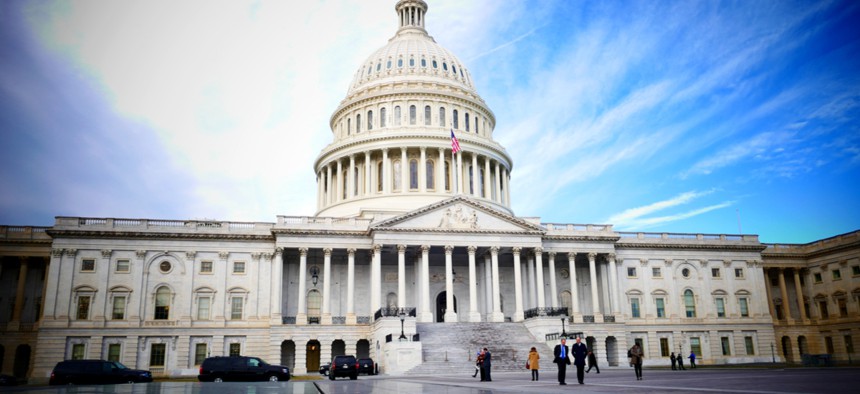5 Ways Congress Can Grow the Internet of Things

Golden Brown/Shutterstock.com
A trade association asked Congress to pass legislation that would advance connected technology in the United States.
A Congressional effort to advance the internet of things is progressing as a government watchdog gathers information about the wireless spectrum required to support billions of connected devices.
Reps. Suzan DelBene, D-Wash., and Darrell Issa, R-Calif., cofounders of the Congressional Internet of Things caucus, requested a Government Accountability Office investigation into the spectrum and those results are coming in, DelBene said at a recent event in Washington.
The GAO report is just one part of a multipronged effort she and Issa are undertaking to ensure that lawmakers and federal agencies “really do understand that technologies work, that they may not have used, or seen or experienced.”
» Get the best federal technology news and ideas delivered right to your inbox. Sign up here.
DelBene and Rep. Ben Ray Lujan, D-N.M., recently introduced legislation that would set aside $220 million a year for five years for federal agencies to coordinate smart city programs. Aside from outfitting cities with high-tech sensors and processing large amounts of data, “we really hope this bill will highlight the promise of the internet of things,” DelBene said at the event hosted by the Information Technology Industry Council, a trade association.
ITI, in conjunction with Samsung, Intel and other large technology groups, has its own requests for Congress, including that lawmakers advance the Developing and Growing the Internet of Things or DIGIT Act, which would create a working group to remove barriers to that technology’s development.
Here are a few of their other recommendations:
- Define the internet of things. The group defined the term broadly as “a network to the cloud (data center) from which data can be shared and analyzed to create value (solve problems or enable new capabilities)” and could include phones, appliances, machinery and cars connected to the internet. But Congress doesn’t yet have a standard definition of what the internet of things is, and before it drafts legislation related to the topic, lawmakers should adopt a standard definition, the trade group argued.
- Use infrastructure spending packages to invest in the internet of things. Congress should pack infrastructure-related legislation with incentives for agencies to use high-tech, data-rich systems, especially for transportation and automotive systems, the group suggested. While government shouldn’t use taxpayer dollars to “create a market for government-favored technologies or to choose technology winners and losers,” but instead should create policy that would encourage government groups to invest in safe self-driving technology.
- Reduce unnecessary regulations. The federal government should see itself as a standard-setter for internet of things, but shouldn’t adopt regulations if industry already abides by certain voluntary practices, the group recommended.
- Collaborate with other nations. The federal government should “aggressively protect cross-border data flows through trade agreements and other enforceable mechanisms with trading partners,” the report said. When domestic companies are required to store or process data within a specific nation’s borders, those agreements “threaten scalability of the IoT,” the group argued.
- Incentivize hardware and software security. Congress should require that any internet of things products receiving government funding must contain robust security solutions, the group argued.





